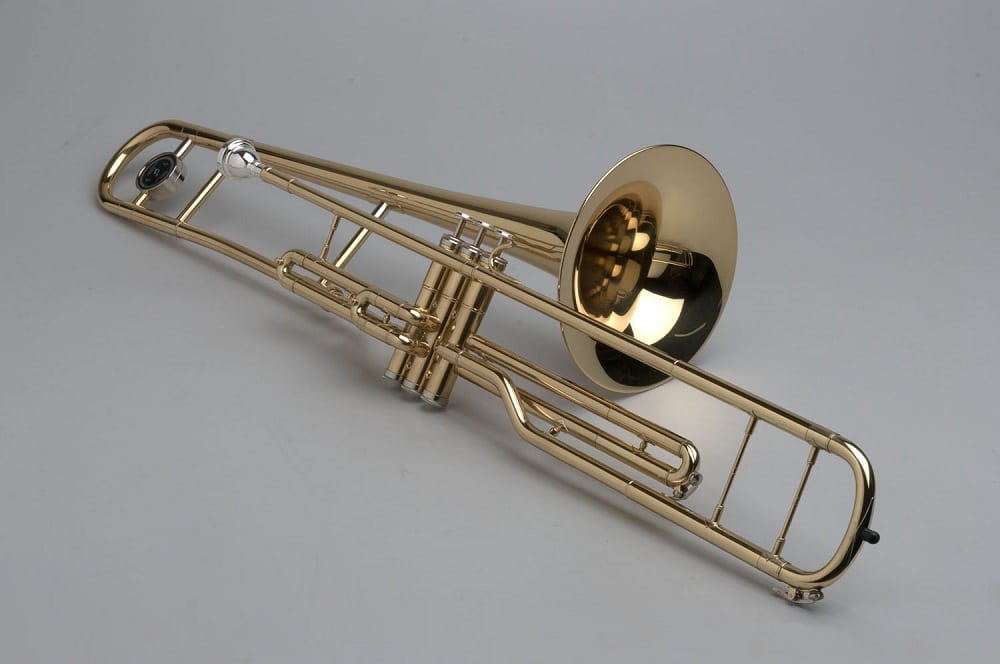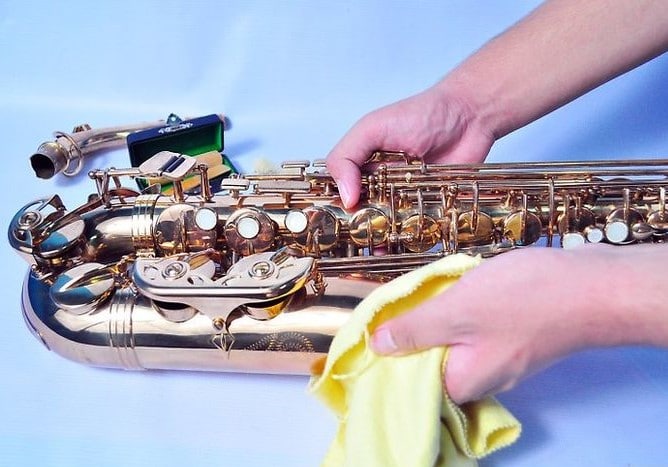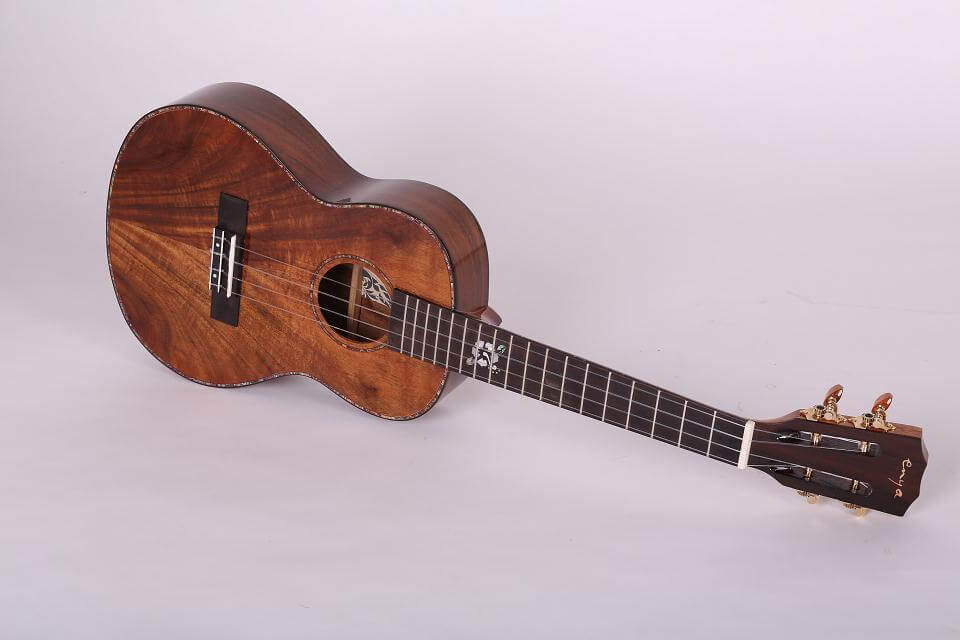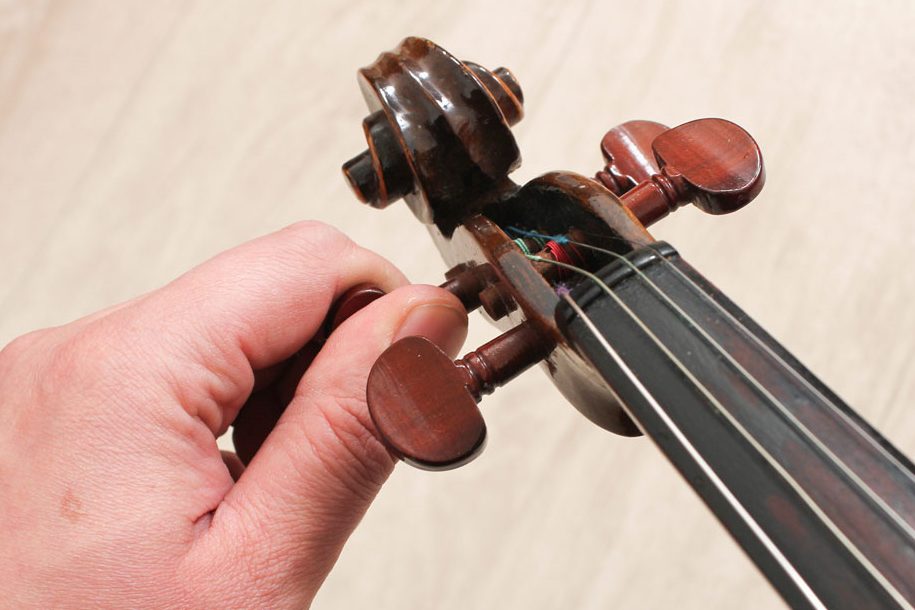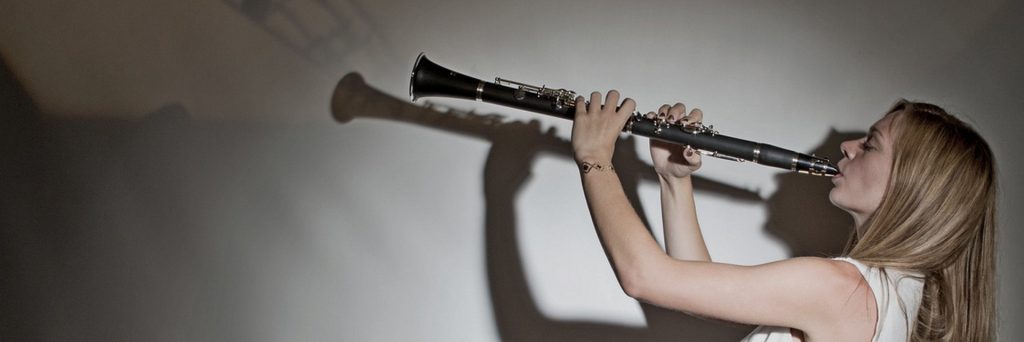Imagine playing a DJ set in a local place just across the street, where all your friends are partying and enjoying their time. And all of a sudden, just before the beat drop, the music goes off. Frustrating is not even close to describing this situation.
We looked at more than 50 models and selected the 11 best DJ controllers, where the Pioneer DJ DDJ-1000 is our top choice, to help you prevent such situations. We looked at a number of features that differentiate them. The first was what level of DJ each controller was designed for, since expert-level controllers can be expensive and difficult for beginners to use, while entry-level controllers won’t have the functionality needed by professional DJs. We also looked at the software that different controllers come with and what software each controller is compatible with, since it needs to work with the rest of your mixing equipment.
Extra features: 4 new Beat FX & Sound Color FX, improved Magvel Fader – durable for more than 10 million movements
Users rave about this DJ controller from Pioneer thanks to its incredible performance at a reasonable price, declaring it the closest controller to a nightclub DJ setup that nearly anyone can afford. Pioneer adopted the layout used by older CDJ setups, for a long time the standard in clubs, so that this is an easy transition to a controller for professional DJs. This controller is set apart by the dual LCD screens in the center of each jog wheel, which provide customizable information about waveforms, beats per minute, and more as you’re using the wheels.
Users loved the Magvel Fader on the base of this controller, which is designed to be extremely durable and provides intricate control. It also makes it relatively straightforward to get started scratching with this controller since there is very low latency between the crossfade and movements on the jog wheels. The main control panel is set up for four channels of sound, which is helpful for DJs looking to mix complex sounds.
The rear end of the controller is fully-featured, with four inputs to connect to additional CDJs or analog turntables as needed. It also has two microphone inputs as well as two booth and a master output, so you can connect directly into the PA system at your next show.
The controller comes with Rekordbox DJ software, which is compatible for both Windows and Mac, although one complaint that users of Serato had is that this cannot be mapped to that software.
Extra features: sturdy road-worthy metal construction, 3 high-res color screens
This powerful DJ controller from Numark is that manufacturer’s answer to the DDJ-1000 from Pioneer, matching in both ability and price. The design is significantly different, however. The cornerstone of this controller is the panel of thee high-resolution LCD screens at the top of the unit, the center of which shows waveforms for your current tracks so you can match beats exactly with just a glance. The three LCD screens are also designed to sync in real-time with the Serato DJ Pro software, so you can run the controller without having to stare at your laptop the whole time. Note also that the controller comes with Serato DJ Pro, so you won’t need to spend extra money on an expensive software upgrade after your purchase.
The aluminum jog wheels are designed for ultimate control, offering 3,600 ticks per revolution so you can get your jogs exactly how you want them. The mixer is able to handle four channels to provide you the most flexibility in mixing, and each channel has a touch-activated three-way filter knob for detailed control over the sounds you’re producing. There are also four touch-activated knobs at the top of the controller that can be customized to controls of your choice.
This controller is large and surprisingly heavy at 31 pounds, but according to Numark, this is by design. The all-metal body of the controller is designed for durability so you can take it on the road to your next gig without worrying about it – just be sure to invest in a portable case since it’s not included.
Extra features: large 7-inch touchscreen, can be combined with Rekordbox video to load videos and images to decks, or stream live footage from USB camera
Users loved this versatile controller from Pioneer, which features four-channel mixing controls as well as a large seven-inch touchscreen at the top of the unit. The touchscreen displays the details you need when mixing, plus features Pioneer’s Track Zoom to allow you to quickly hone in on waveforms to match beats. The screen also includes a Qwerty keyboard so that you can search through your music library and settings to find what you need quickly.
The EQ level screen in the center of the controller is another feature that professional DJs appreciated on this unit, since it makes it easy to monitor levels without referring back to the Rekordbox DJ software. Some users had slight issues using the touch pads for predefined functions, noting that tracks would get off time since the pads seemed to be slightly mismatched with the Rekordbox DJ software.
Pioneer paid close attention to the inputs and outputs on this controller, to provide you with the most flexibility when designing your setup. The controller can be connected to a laptop via USB so that you can play premade tracks from Rekordbox DJ without loading sound cards into the controller. On the other hand, you can also use it completely without a laptop by simply plugging in a USB flash drive with your tracks. There are two microphone inputs, each of which can accept either XLR or inline microphone inputs. There are also two phono/line outputs so that you can add a CDJ and analog turntable into your mix.
Extra features: built-in Voice Transformer, 4 integrated Channel FX
This intermediate-level DJ controller from Roland sets itself apart from the competition by including Roland’s TR drum machine. The percussion features make it easy to mix in clap, hi-hat, kicks, and snares on top of the four channels of audio tracks that you can control with the dial board. Plus, the controller features 16 velocity sensitive effects buttons at the bottom of the pad, as well as a built-in voice transformer that allows you to alter pitch, formant, and ducking on the fly. However, users note that the pads can be quite tough to depress fully, which can make it somewhat difficult to achieve finger drumming.
The controller is relatively small and lightweight, but it does come with two heavy-duty jog wheels of medium diameter. Users liked the jog wheels on the whole thanks to their sleek look and for making it easy to scratch, but many felt that the wheels were too stiff compared to other controllers to backspin easily. The remainder of the knobs on the controller are easy to turn and allow you to make precision adjustments, but users note also that Roland’s manual for this controller is lackluster – so you’ll need to do some experimenting to find out what all the different controls are designed to do.
The controller comes with Serato DJ Pro software, which is impressive given the moderate price, since you can continue using this software as your DJing progresses and you advance to a more expert controller in the future.
Extra features: comes with stand, polishing cloth, and headphones
This professional-quality DJ controller from Pioneer may be expensive, but as the flagship controller for use with the Rekordbox DJ software users will be quick to tell you the price is worth it. The controller is designed to mimic the Rekordbox software, making it intuitive for users to transition to this controller from other software packages and enabling faster mixing of complex tracks. With four-channel controls, it is also straightforward to make detailed and precise mixes without having to switch between decks within the software. The controller can also be mapped to numerous other audio software programs, including Serato and Virtual DJ.
Users loved the jog wheels, which are large, raised, and cast from aluminum to provide excellent feel when scratching. The controller is designed with Pioneer’s jog feeling adjustment so that you can precisely adjust the resistance of the jog wheels to match your scratching. The wheels also come with illuminated cue point markers that make it simple to nail your cue and loop points every time.
The downside to this controller is that it is quite large and heavy compared even to other professional controllers, which can make it difficult to transport to gigs. That said, Pioneer sells this controller in a bundle with a stand, a polishing cloth, and a set of DJ headphones, which is a nice touch for the price – although users note that the headphones are sub-par quality compared to the performance of the controller itself.
Extra features: 8 performance modes, lightning connection charges the device that is plugged in
This relatively inexpensive controller from Reloop is a great choice for intermediate DJs thanks to the four-channel control and inclusion of Serato DJ software. Reloop describes this as the first “plug and play” controller that is able to work seamlessly with both Serato DJ and DJAY Pro, which together allow it to be used with any laptop as well as most tablets or phones – the controller has an iPad docking station at the top. Even better, users loved the Spotify integration that comes with DJAY Pro, saving tons of time curating your own music library and sound cards. The Match feature also helps users discover new music and quickly find tracks that work well with the mix they are creating.
The controller features two medium-sized jog wheels that are illuminated with LEDs to give the unit a sleek look and make it easy to use in a dark club. The four-channel controls are a major plus, allowing more advanced mixes without having to switch between tracks within the Serato DJ software. The eight performance modes were appreciated by users, although this still leaves some room for expansion to the 16 modes found on some professional-quality controllers.
There are a few downsides to the construction of this controller. Some users found that the crossfade bar on the base of the controller has durability issues and allows sound to bleed through when it should be cut. In addition, users noted that the microphone input has no equalizer and does not produce the best sound quality.
Extra features: needle search – jump to any part of a track with one touch, large jog wheels
This small and lightweight DJ controller is a great option for those just getting into DJing but who don’t want to miss out on the features that will allow them to take their skills to the next level quickly. The controller features two large jog wheels – users were pleasantly impressed by their size relative to the overall size of the controller – that are designed for low latency, for accurate jogs and easy scratching.
The controller comes with Serato DJ Pro software, which is impressive for an entry-level controller, and features several controls designed specifically for this software. For example, the controller has Pitch ‘n Time buttons on the side of each jog wheel that allow you to switch between key functions in Serato DJ Pro without having to change tempo. The controller can also be upgraded with Serato DJ DVS for those who want to take their scratching to the next level with a CDJ or analog turntable. Users also appreciated the needle search slider at the top of each jog wheel, which makes it fast and easy to jump through a track with a single touch and without searching through the Serato software.
The controller is extremely lightweight, which some users loved for the portability it afford the unit while others felt made it feel cheaply constructed. Compared to other entry-level, two-channel controllers, this one can be a bit pricey but it also offers a lot of room for burgeoning DJs to grow.
Extra features: dedicated buttons for Serato Flip
This inexpensive controller from Pioneer is a great choice for intermediate DJs who don’t want to spend a fortune to upgrade their controller or even for professional DJs who need a backup controller to bring to gigs. The controller comes with Serato Flip and Serato Pitch ‘n Time software, but not with Serato DJ Pro, so plan to spend an extra bit of cash to upgrade the software if you want to unleash the full capabilities of this controller. While the controller can be mapped to Traktor, users note that there are some lag issues with the official mapping offered by the software and Pioneer.
The controller panel has control knobs for four channels, plus two large jog wheels and 16 colored velocity sensitive push pads for activating different modes and effects. There are also dedicated controls for DJs who want to use Serato Flip. Users loved how easy it is to scratch on the jog wheels, which are updated from the original DDJ-SX2 wheels to provide tighter response control and lower latency. The controller also has an equalizer screen in the center of the panel so you can monitor levels at a glance. Users used to the original DDJ-SX2 controller also appreciated that Pioneer updated the microphone input to improve the sound quality from voice inputs.
The controller is lightweight enough to travel easily at only 12 pounds, but users appreciated the sturdy feel of the knobs and the panel itself.
Extra features: dedicated buttons for Serato Flip
This inexpensive controller from Pioneer is a great choice for intermediate DJs who don’t want to spend a fortune to upgrade their controller or even for professional DJs who need a backup controller to bring to gigs. The controller comes with Serato Flip and Serato Pitch ‘n Time software, but not with Serato DJ Pro, so plan to spend an extra bit of cash to upgrade the software if you want to unleash the full capabilities of this controller. While the controller can be mapped to Traktor, users note that there are some lag issues with the official mapping offered by the software and Pioneer.
The controller panel has control knobs for four channels, plus two large jog wheels and 16 colored velocity sensitive push pads for activating different modes and effects. There are also dedicated controls for DJs who want to use Serato Flip. Users loved how easy it is to scratch on the jog wheels, which are updated from the original DDJ-SX2 wheels to provide tighter response control and lower latency. The controller also has an equalizer screen in the center of the panel so you can monitor levels at a glance. Users used to the original DDJ-SX2 controller also appreciated that Pioneer updated the microphone input to improve the sound quality from voice inputs.
The controller is lightweight enough to travel easily at only 12 pounds, but users appreciated the sturdy feel of the knobs and the panel itself.
Extra features: portable, has most of the features found on larger controllers
This extremely inexpensive DJ controller from Numark is great for the beginner just starting out in mixing music, and the budget price even makes it suitable as a gift for a friend or family member. The controller is lightweight and small, so you don’t need a large studio to fit it into, yet it has many of the features found on larger entry-level controllers. For example, it includes two small jog wheels – although users note they can be hard to control with much precision and are not very useful for scratching. It also has a crossfader and a pitch fader that work surprisingly well for blending across tracks, given the low price of this controller. The small size is also an advantage for more advanced DJs who need a portable controller they can take on the go – it fits right at the base of most laptops!
The two channels are plenty for most entry-level users, and the controller offers preview playback via the headphone jack just like on significantly more expensive controllers. The controller also features four pad modes to allow you a relatively high degree of control over cue points and looping.
The controller comes with Serato DJ Lite software, which is a great jumping-off software for beginning DJs who may eventually upgrade to the standard Serato software used by professional DJs. The software is also widely compatible with operating systems and supports external sound cards for users who wish to add them.
Extra features: multi-sensorial pad mode section
This controller from Reloop is a great choice for beginning DJs looking to upgrade their basic controller to something with many of the features of professional-quality controllers. The controller features large jog wheels that users noted have a feel very similar to true vinyl and are easy to use for scratching. Users loved the multiple lit-up buttons to switch between modes quickly, as well as the cross fade and pitch fade controls that allowed precise mixing between tracks.
The controller only provides controls for two channels, which may put an upper limit on this controller’s usability for intermediate to advanced DJs. In addition, many users noted issues with the software side of the controller – the controller may lose communication with the DJAY 2 audio program, especially when using the controller with an iPad, rather than a laptop, as the system is designed. For many users, this means the controller is best for use in the studio at home, rather than at gigs, where lost sound is a major issue. Another issue for some users is that although the software is compatible with Android, it cannot be used with Windows laptops or tablets.
That said, users appreciated the integration of the DJAY 2 software with Spotify, which makes it significantly easier to curate an audio library for mixing. The Match feature was also beloved by beginning DJs, since it makes it easier to find tracks that mix well together and helps to teach the basics of choosing music that works seamlessly as a DJ.
Now that you’ve learned more about the ins and outs of our 10 favorite DJ controllers on the market today, how do you choose between them to get the controller that is right for your experience level, intended use, and budget? Our Buying Guide will cover everything you need to know when choosing a DJ controller, whether you’re a beginner or expert DJ, including the important features that determine how you’ll be able to use your controller.
While you can mix music with software alone, any DJ will tell you that having a controller makes a world of difference in your ability to produce good music. Having a high-quality DJ controller allows you to quickly mix tracks within the software without having to manually move tracks around with a mouse or trackpad, which usually entails sorting through endless menus. A full-scale controller gives you the freedom to quickly access the controls you use most and is much more intuitive than any audio software for the vast majority of DJs.
A DJ controller is also more than just an interface to your software – it can serve as an all-in-one audio board for outputting your music. Many DJ controllers allow you to preview tracks you’ve mixed from your laptop before fading into them over the PA system. At the same time, DJ controllers can serve as the interface between your computer – which contains your audio software and your entire music library – and whatever speakers you are planning to play out your tracks over.
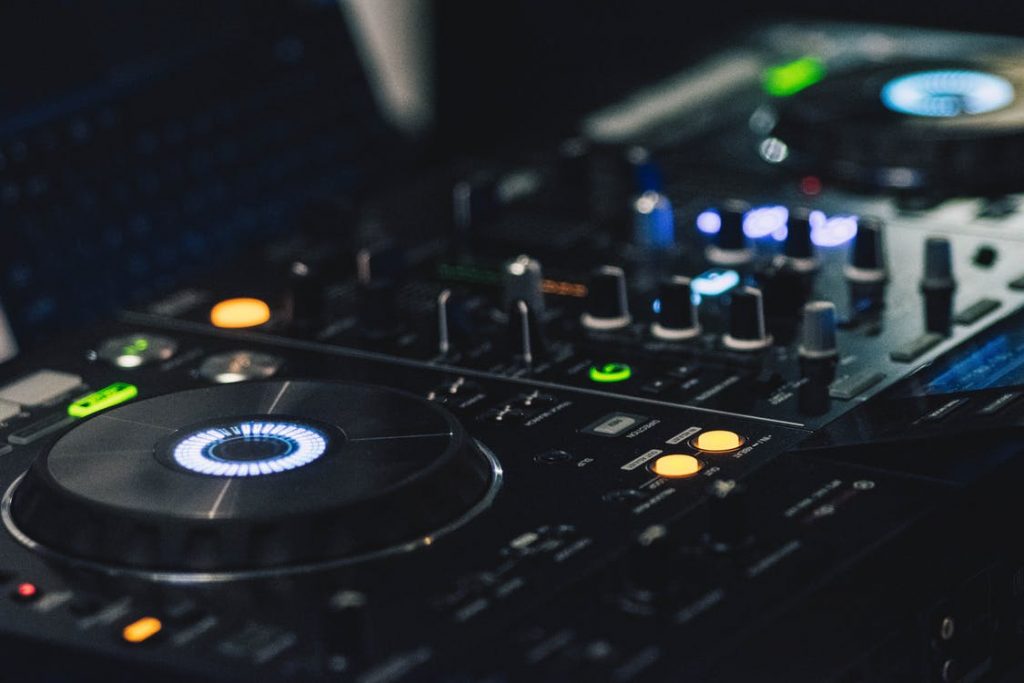
DJ controllers can seem complicated, especially for beginning DJs, but there are a number of features in common that define the performance, usability, and price of different controllers. In this section, we’ll take a look at some of the important features you need to know about when choosing a DJ controller.
When you’re choosing a DJ controller, it is important to be honest with yourself about your abilities as a DJ and your expectations for how you will use the controller. Beginner DJs are likely to be confused by professional-level DJ controllers and advanced DJs are likely to be frustrated with entry-level controllers – either way, choosing a system that isn’t matched to your ability level isn’t a great situation.
The software included with your DJ controller is an extremely important part of your DJing experience, since this is ultimately what you’ll be mixing music in with the controller. The Rekordbox DJ software is considered relatively easy for beginners to learn, but powerful enough for professional DJs, so many controllers – including the all of the Pioneer controllers we reviewed – come with this software. The Serato software comes in multiple versions depending on the experience level of the DJ that the controller is intended for – one of the best additional investments you can make as your experience level grows is to upgrade your software while continuing to use the same controller.
Be sure when choosing software that it is compatible with your computer – Windows or Mac – as well as with your mobile phone – Android or iOS.
Don’t forget to check whether the controller can be mapped to other software applications via MIDI if you plan to use your own software rather than the audio program that comes with your controller.
The number of channels on a DJ controller effectively determines how many different tracks you will be able to control individually in your mix. Controllers typically come in either two- or four-track models, with beginner-level controllers, like the Numark DJ2GO2, featuring only two channels and most expert-level controllers, like the Pioneer DDJ-1000 and DDJ-RZ controllers, featuring four channels. Two-channel controllers are often able to control four tracks depending on your audio software, but note that in this case one set of controls on the controller will need to be switching between two tracks – so most DJs recommend a four-channel controller if you plan to be mixing with four tracks.
The dimensions of your DJ controller can be a big deal if you are tight on space, such as if you have a small studio setup or are planning to play at a cramped club, as well as if you plan on traveling with your controller. In general, beginning DJ controllers will be smaller than professional-quality controllers since they have fewer controls.
One of the biggest contributors to controller size is the presence of turntables – if you are tight on space, considering opting for a controller with miniaturized turntables like the entry-level controller from Numark.
Along with size, weight is an important consideration when it comes to transporting your controller between home and a studio or a club. In general, entry-level controllers tend to be lighter than professional-level DJ controllers, although weight should be a secondary consideration to having the feature set you need, to mix music the way you like.
Screens are a common feature on professional-quality DJ controllers, since they allow you to use your controller without a laptop connected, if you want to. However, screens can be helpful even if you are using your controller with the audio software open since they allow you to monitor sound levels directly on the controller, freeing up window space in your audio software. The number, size, and types of screens vary on these controllers, from a large touchscreen on the Pioneer controller, to a set of three small screens on the Numark controller, so you should consider your DJing style when choosing what types of screens you need.
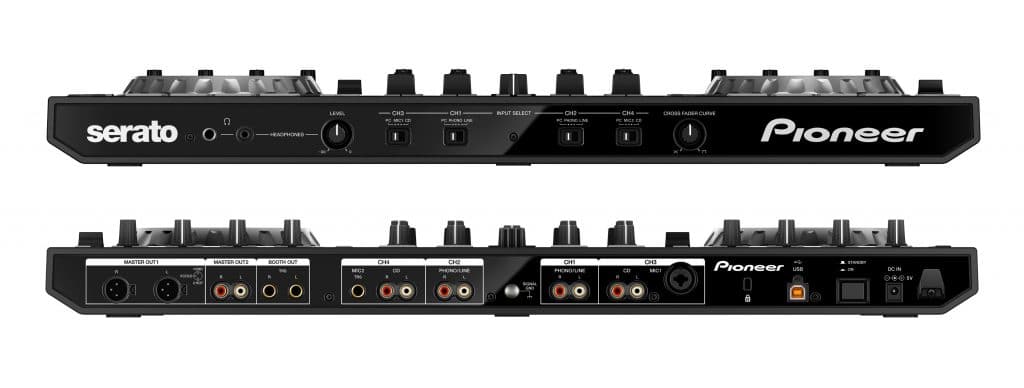
If you plan to use your controller without a laptop – something that is often restricted to expert DJs – you’ll need a way to load your audio library onto the controller. This can be done by opting for a controller with internal memory to store the audio, but more controllers are designed with a USB input since this provides greater flexibility in adding and subtracting music from your controller. For example, the Pioneer DDJ-1000 and DDJ-RZ controllers both come with two USB ports so you can add multiple music libraries.
Jog wheels are the pair of platters that come with nearly all modern DJ controllers. They’re designed to replicate the vinyl turntables of older DJ systems and allow you fine control over mixing music. The wheels can be used to speed up or slow down tracks, as well as to create fades in between tracks. For many DJs, having jog wheels is also essential for creating custom scratches in a mix. Jog wheels may be motorized or non-motorized and have different sensitivities to touch, depending on the construction of the controller – all of which comes down to DJ style and preference. They also vary widely in size, although the size of the jog wheels is one of the major determinants of how big and heavy a controller unit will be.
DJ controllers are expensive pieces of equipment, but you’ll need a few accessories to complete your DJ set. Most DJs will want a stand to hold their controller at a comfortable level, as well as a pair of headphones and a carrying case for moving the controller to gigs. Some controllers come in a bundle with some or all of these things – like the bundle from Pioneer that includes a set of headphones and a stand with the controller – which can be helpful in that it saves you from making multiple purchasing decisions. On the other hand, you may want a specific set of headphones, or a more heavy-duty carrying case.
Our overall favorite DJ controllers on the market today are the DDJ-1000 and XDJ-RX2 from Pioneer and the NS7III from Numark. All three of these controllers are designed for expert and professional DJs and pack a ton of features to allow you the freedom to create. Users love the seven-inch high-resolution touchscreen controller on the Pioneer XDJ-RX2 for its customizability and the ability to use the interface and a set of USB sound cards to free the controller from a laptop. The DDJ-1000 and NS7III feature many similar features and come in at similar price points, with the Pioneer unit featuring Rekordbox software and the Numark controller opting for the tried-and-true Serato DJ Pro software. Although we appreciate the easy control layout on the Numark controller, we feel the Pioneer controller is the overall best DJ controller, thanks to its highly precise Magvel Fader bar and the extremely responsive and low-latency jog wheels.
